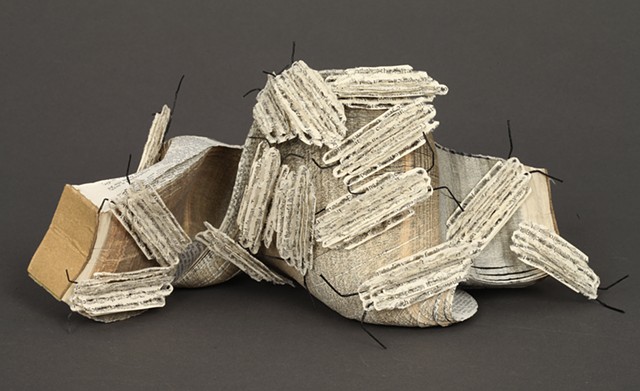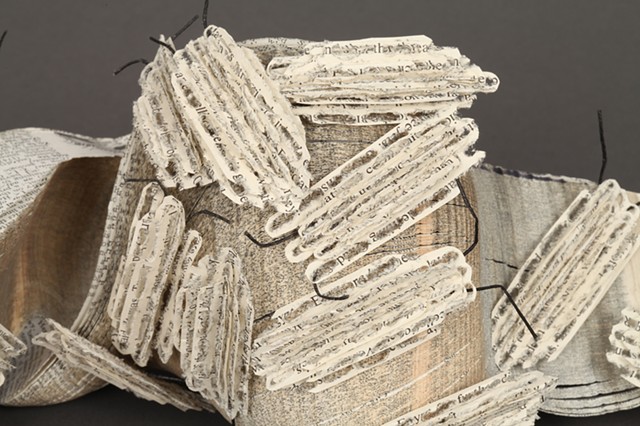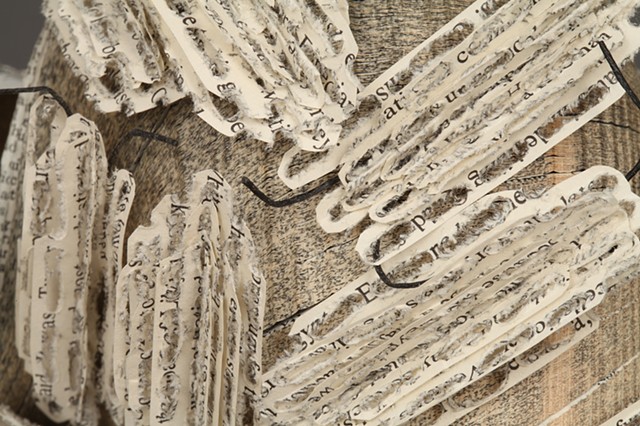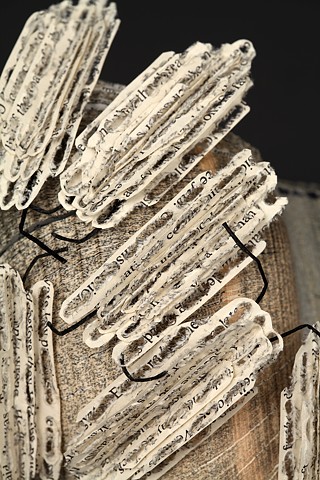Swarm: Incunabula Reductus: Book Bug
altered book, steel pins
5 x 9 x 7 3/4 in.
2013
This genus of Hexapoda is named Incunabula Reductus, from its reducing of a full page of printed type into a veil-like structure, morphed into an improbably slender body. Its common name is Book Bug, and the male of the species has a longer antennae than the female’s. (The female is slightly smaller, but not always.) The insect has a porous body and an exoskeleton with two black feelers, which are constantly in motion. Essentially, the Book Bug is nonpathogenic and found in dry, abandoned libraries—sadly becoming ubiquitous in every country on Earth. The rapid growth of this black, antennae-probing invertebrate is optimized by its voracious nature, making it eat every consonant and vowel on a page because of the lack of human touch. The constant vigilance of hands turning pages leaves a slight oily smudge and trace of saliva left on the top or bottom page corners of codices; these act as a repellent, inhibiting and even deterring the small arthropod from consuming printer’s ink. The appetite of the Book Bug makes it capable of consuming an entire library in a few months. Some library users can glimpse these probing insectum chewing calcified pulp as their meal. Although it can be a destructive pest, readers have trained it to avoid eating ink on a page, and if a tired-yet-avid bibliophile awakens from a deep sleep to find a book splayde across his or her lap, or with two inserted digits inbetween the pages, the aroused person will have the good fortune of hearing the bugs’ quiet, hypnotizing chatter, like that of distant cicadas. (The latter is an undocumented folktale, a hearsay told by generations of grandparents.) Entomologists commonly find the remains of Book Bugs lying on their sides after consuming so much black ink that they have died from overeating. There are numerous anecdotes of readers showing a commitment and love for the printed word who are capable of training the insect to consume dust mites and silverfish instead. Should you find this stridulate in your site or possession, you will find that it grows fonder of its reader’s companionship than its predisposition to annihilate the black pulpy fiber of your books.



